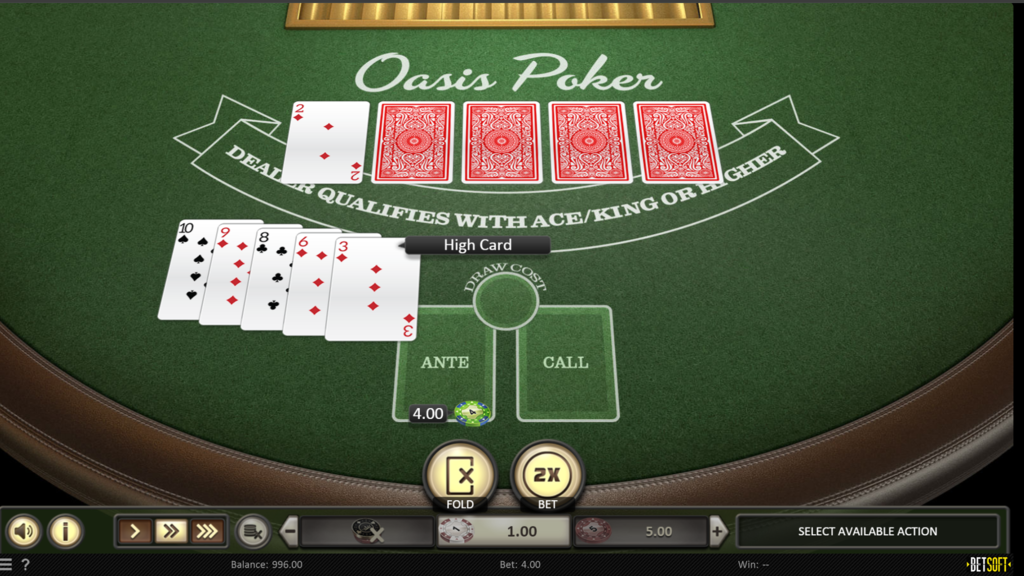Poker is a family of card games that combines gambling, strategy, and skill. The game involves betting and individual play, where players aim to win the pot by having the best combination of cards or by convincing others to fold their hands. Poker is typically played with a standard deck of 52 cards, and the goal of the game is to win the pot, which is the sum of all the bets made by the players in a hand.
History of Poker
One popular theory is that poker evolved from a Persian game called As-Nas, which was played with a deck of 25 cards and had many similarities to modern poker. As-Nas was brought to Europe by Persian sailors in the 17th century and quickly became popular among European aristocrats.
Another theory is that poker evolved from a French game called As-Nas, which was played in the 16th century and involved betting and bluffing. Poque was brought to North America by French colonists and quickly became popular in the United States, where it evolved into the game of poker that we know today.
Regardless of its origins, poker quickly became a popular pastime among Americans in the 19th century, particularly among those who were drawn to the frontier lifestyle of the Wild West. The game of poker was so closely associated with the Wild West that it became known as the “national card game” of the United States.
Over the years, poker continued to evolve and develop new variations and strategies. Today, the game is played in casinos and homes around the world and has become a popular spectator sport with major tournaments such as the World Series of Poker drawing players and viewers from around the globe.

How to play Poker?
Poker is a popular card game that is played in casinos and online. Here’s a step-by-step guide on how to play:
- Understand the game – There are different types of poker games, including Texas Hold’em, Omaha, and Seven-Card Stud. It’s important to understand the rules of the specific game you want to play.
- Know the hand rankings – In poker, the objective is to make the best possible five-card hand. Familiarize yourself with the hand rankings so that you know what hands to aim for.
- Deal the cards – In most poker games, each player is dealt two cards face down, and then there are rounds of betting and community cards dealt face up on the table.
- Place your bets – After the initial deal, there is a round of betting where players can choose to bet, check, or fold. This process continues after each community card is dealt.
- Make your hand – Once all the community cards are on the table, players make their best five-card hand using their two cards and the community cards.
- Showdown – After the final round of betting, any remaining players reveal their cards, and the best hand wins the pot.
- Understand the strategies – While poker is a game of luck, there is also an element of strategy involved. Familiarize yourself with different betting strategies, bluffing techniques, and position play to improve your chances of winning.
- Practice – Like any skill, playing poker takes practice. Start by playing for free online or with friends, and gradually work your way up to playing for real money.
Poker Variants
Here are some of the most popular variants of Poker:
Texas Hold’em

Texas Hold’em is one of the most popular types of Poker games played worldwide. It is played with two cards dealt to each player, followed by five community cards that are shared among all players. Players must use a combination of their own two cards and the community cards to form the best five-card hand possible. The game has four rounds of betting, and the player with the best hand at the end of the game wins the pot.
Omaha
Omaha is another popular type of Poker game that is similar to Texas Hold’em. In Omaha, each player is dealt four cards face down, and five community cards are dealt face up on the table. Players must use two of their cards and three of the community cards to form the best possible five-card hand. Omaha also has four rounds of betting.
Seven Card Stud
Seven Card Stud is a classic Poker game that was popular before Texas Hold’em became the game of choice. In Seven Card Stud, each player is dealt seven cards, with the first two and the last card dealt face down, and the remaining four cards dealt face up. Players must use a combination of their cards to form the best possible five-card hand. Seven Card Stud has five rounds of betting.
Razz
Razz is a lowball version of Seven Card Stud, where the goal is to have the lowest possible hand. In Razz, each player is dealt seven cards, with the first two and the last card dealt face down, and the remaining four cards dealt face up. Players must use a combination of their cards to form the best possible five-card hand, with aces counting as low. Razz also has five rounds of betting.
Five Card Draw
Five Card Draw is a simple type of Poker game that is often played in casual settings. Each player is dealt five cards face down, and then has the opportunity to discard any of their cards and draw new ones. The goal is to have the best possible five-card hand after the draw. Five Card Draw has only two rounds of betting.
These are just a few examples of the many different types of Poker games that exist. Each game has its own unique rules and strategies and offers players the opportunity to test their skills and compete against others.
Poker Strategies
Poker is a popular card game that involves skill, strategy, and luck. There are many different variations of poker, each with its own set of rules and strategies. Here are some of the most popular poker strategies that can be used to improve your chances of winning:
Position
The position is a crucial concept in poker that refers to where a player is sitting at the table in relation to the dealer. The later a player’s position, the more information they have about their opponents’ actions, and can make better-informed decisions. Players in early positions should play tighter and more conservatively, while those in late positions can play more aggressively.
Hand Selection
Hand selection is an important strategy in poker that involves choosing the right hands to play. Players should consider the strength of their starting hands, their position at the table, and the actions of their opponents when deciding whether to play a hand or fold. Good hand selection can help players avoid losing money on weaker hands and maximize their winnings on stronger hands.
Bluffing
Bluffing is a popular strategy in poker that involves making a bet or raise to deceive opponents into thinking that you have a stronger hand than you actually do. Successful bluffing requires a good read on opponents, a believable story, and careful observation of opponents’ reactions.
Bankroll Management
Bankroll management is an essential strategy for any casino game, including poker. The strategy involves setting a budget and sticking to it, regardless of whether you’re winning or losing. Players should also decide on their bet sizes and adjust them according to their bankroll. Proper bankroll management can help players avoid losing all their money in one session and ensure that they can continue playing for longer.
Pot Odds and Hand Equity
These are important concepts in poker that can help players make better-informed decisions. Pot odds refer to the ratio of the size of the pot to the size of the bet, and hand equity refers to the probability of winning the hand based on the cards dealt. By using these concepts, players can make better decisions about whether to call, raise, or fold in different situations.
Additional Poker Tips
Here are some tips that can help improve your game:
- Start small: If you’re new to Poker, start with small-stakes games or play with friends for fun to build up your skills and confidence.
- Know when to fold: Don’t be afraid to fold if you have a weak hand or if the betting gets too high. This will help you conserve your bankroll and avoid unnecessary losses.
- Pay attention to the action: Always pay attention to what’s happening at the table, including the cards on the board, the betting patterns of your opponents, and any tells they may be giving off.
- Don’t play too many hands: Avoid the temptation to play every hand, and instead focus on playing strong hands and folding weak ones. This will help you avoid losing money on marginal hands.
- Avoid tilt: Tilt refers to an emotional state where you start making bad decisions because you’re frustrated or angry. To avoid tilt, stay focused and disciplined, and take breaks if you need to.
- Practice good bankroll management: Make sure you’re only playing with money you can afford to lose, and avoid chasing losses by betting more than you can afford.
- Learn from your mistakes: Everyone makes mistakes while playing Poker, but the key is to learn from them and use them to improve your game.
- Stay patient: Remember that Poker is a game of patience and that you won’t win every hand or every game. Stay patient and stick to your strategy, and the wins will come.
The Future of Poker

The future is bright, with the game continuing to attract a large and dedicated following around the world. The rise of online poker has made the game more accessible than ever before, and the proliferation of mobile devices means that players can now play poker anytime and anywhere.
In recent years, there has also been a growing trend towards live poker events and tournaments, with large prize pools and professional players attracting significant media attention. These events have helped to raise the profile of the game and introduce new players to the excitement of competitive poker.
There are also innovations and technologies being developed that could potentially transform the game of poker in the future. For example, artificial intelligence and machine learning could be used to develop more advanced poker bots that can compete with human players, while virtual and augmented reality could create new and immersive ways to play poker online.
FAQ
Conclusion
In conclusion, Poker is a popular and exciting card game that has been enjoyed by players around the world for centuries. Whether you’re a beginner or an experienced player, there is always something new to learn about the game, and the challenge of outwitting your opponents and winning the pot is a thrilling experience. With its mix of strategy, skill, and luck, Poker is a game that can be enjoyed by players of all ages and backgrounds, and it continues to be a staple of casinos, home games, and online gaming sites around the world. So, whether you’re playing for fun or real money, give Poker a try and see what all the excitement is about!

